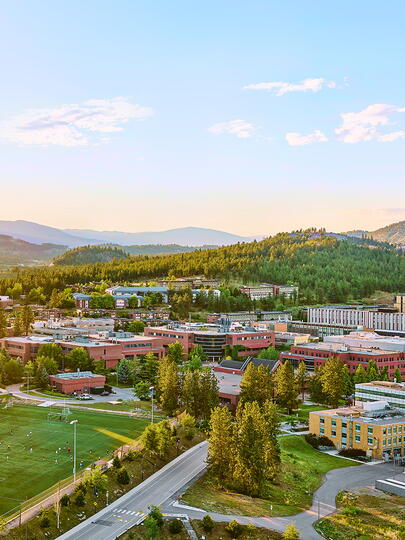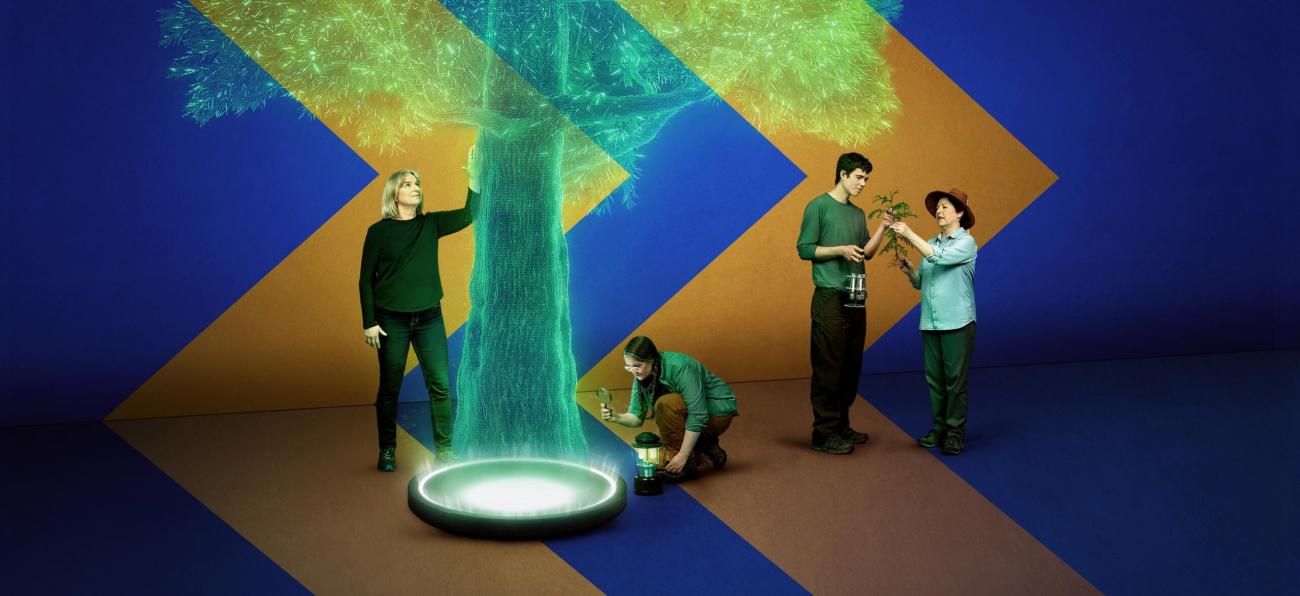Unearthing the hidden world of trees
Moving her Mother Tree Project in forestry forward, Dr. Suzanne Simard and her team have benefited from the support of farsighted donors who appreciate the long-term goals of her research.
In her groundbreaking research, Dr. Suzanne Simard has shown that forests are not just a collection of competing trees, but a network of organisms that work together to survive.
At the heart of this discovery is the “Mother Tree” — an elder tree that helps forests recover from events like fire or logging, by transmitting information through below-ground root and fungal networks.
A professor of forest ecology at the UBC Faculty of Forestry, Dr. Simard’s current research investigates how these complex relationships contribute to forest resiliency, adaptability, and recovery. Despite the impact human activity has had on forests in recent years, Dr. Simard feels there is hope — especially with the support of donors who understand the potential long-term benefits her research can have on forested ecosystems.
“Donor funding has become increasingly important in the past few years,” says Dr. Simard. “I started with a regular three-year Natural Sciences and Engineering Research Council of Canada (NSERC) grant — one of the main federal funding sources for scientists and universities — and now that funding is ending. I’m looking to other sources of support to realize the long-term vision of this research.”
A vital ingredient in the success of the project so far has been the inclusion of Indigenous forestry methods and perspectives.
“I’m pretty optimistic as we build better relationships between Western science and Indigenous ways of knowing,” says Dr. Simard. “Indigenous territorial jurisdictions around the world have the highest carbon storage and biodiversity — whereas the colonial model of industrial forestry is very low. We need to go back and learn from our Indigenous partners and use our Western science tools.”
To help facilitate this, Dr. Simard collaborates with Dr. Teresa Ryan Sm’hayetsk, who was born into the Gitlan tribe of the Tsimshian Nation.
“Dr. Ryan is one of our key people at UBC Forestry, and has been working on the Mother Tree Project since we started in 2015,” says Dr. Simard. “She helps us in a number of ways — one is liaising with our First Nations partners and another is including Indigenous knowledge in how we’re managing the forest.”
Dr. Simard and her team’s research has far-reaching implications for land use management — including the sustainable stewardship of forest ecosystems as the climate changes.
“Once we can devise treatments that absorb more CO2, instead of what we’re doing now, then I think our forests can be restored, recovered, and protected,” says Dr. Simard. “Scientists say once we do that, the forest alone can take up about one-third of the excess CO2 in the atmosphere.”
For Dr. Simard, UBC Forestry provides the perfect match of resources and personnel to carry the Mother Tree Project research forward.
“A lot of innovative science happens in universities. UBC provides an opportunity for students to learn and get experience in doing this incredible research,” says Dr. Simard. “It attracts collaborators that might not otherwise connect. It’s harder to do research if you’re not in an institution like this.”
Dr. Simard also finds the breadth of learning opportunities for student researchers is second to none.
“A lot of undergraduate and graduate students are working on the Mother Tree Project,” says Dr. Simard. “They get direct experience and can network with the broader community outside UBC because it’s such an interdisciplinary and cross-sector experiment.”
The Mother Tree research team’s investigations are already leading to the collection of foundational knowledge and novel insights.
Funding in support of their work will give them a boost of confidence knowing that the community is behind their efforts.
“We greatly appreciate the generosity of donors who can help realize the continuation of this important long-term research,” says Dr. Simard. “The challenges that local and global communities face from climate change will need science-based solutions, and we believe that this project can make a meaningful contribution to a more sustainable forest sector and more resilient and healthy trees.”


































